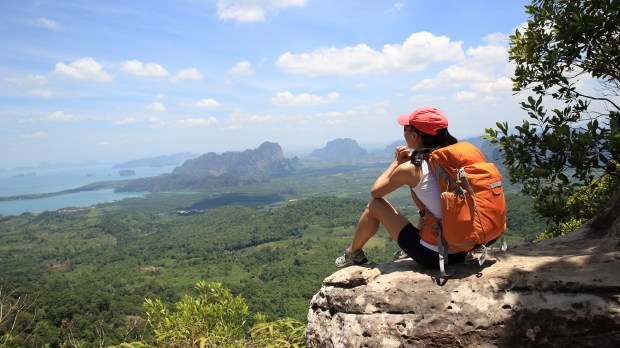For some people, vacation is a time of blissful laziness on the beach; for others, it’s an opportunity to discover foreign cultures or new cuisines. I belong to a large group of people who can’t imagine summer without good hiking shoes, a backpack, and going mountain climbing.
Since I’m not an experienced mountaineer yet, I choose lower mountains and easier routes. However, with each peak I climb, I realize more and more that many of the tips I get on the mountain from my more experienced friends can be successfully applied in the lowlands, facing the challenges of everyday life.
Here they are:
1Prepare
Consult the map and evaluate your route. Prepare food, water, and something to protect you from rain, even if you don’t see a single cloud. And charge your phone.
That’s a lot of things. None of them is guaranteed to be 100% effective. However, without them, the trip can turn out to be a complete failure.
When starting something new (job, relationship, diet, etc), it pays off to make the necessary preparations. Do as much research as possible, read about it, and talk about it. All this will help you feel more confident on your path in life.
2Carry only what you really need
In the mountains, every extra pound can feel as if it weighs at least five times as much. As I fill my backpack, I look at each item three times, evaluating whether I can survive for a few days without it. Ultimately, I choose only what’s absolutely necessary.
It’s good to review your life’s baggage of experiences every once in a while, too. Check what prejudices and stereotypes are as heavy as lead.
Is there perhaps a great need for forgiveness looming over you that’s causing you fear and anxiety? Do you really want to carry all this baggage on your back?
3Go at your own pace
Initially, I set myself the goal of keeping up with my fellow hikers. The effect was deplorable! After the first steep climb, I was panting like a locomotive, cursing my decision to take that trail.
Everything changed when I started walking at a pace suited to my own abilities. Thanks to this change, every subsequent outing was a joy for me, not a trial.
I remember this every time I look askance at someone I know who achieves a goal that I also dream of doing someday. Losing a few pounds, learning a language or running 10 kilometers: Everything will be easier if I stop comparing myself to others.
4Act in spite of fear
The sight of chains to help climb steep rock faces, ladders over waterfalls, or the sound of an approaching storm … These things flood me with fear, and with the corresponding suggestion of a simple solution: Do nothing. Sit and wait. Only … for what? The ground won’t suddenly become flat and the storm clouds won’t dissipate in the blink of an eye. Waiting a moment for the fear to pass doesn’t make sense either.
Only one option remains, and that’s to move forward in spite of the fear. Carefully, with deliberation, but move forward.
Sometimes the challenges of everyday life raise similar fears, especially when I have to do something new. But instead of waiting for myself to stop being afraid, I start doing what I need to do.
Little by little, little by little. What about my fear? It goes away, and I don’t even notice when it’s gone.
5Evaluate your options
Although walking onward in spite of fear allows you to push your limits, it’s good to remember that not everything is possible. Since I’m currently facing the chains to help me climb one mountain, this is not the time to start climbing a different one. Since I still can’t physically endure a route planned to take 9 hours, it doesn’t make sense to throw myself into a 12-hour one with a heavy backpack.
What about in the lowlands? Does it make sense to take on extra responsibilities at work, even though I can barely fulfill my current ones? Or to pay for a gym membership with three visits per week when I barely have a single afternoon off?
6Stop to look around you
If you’re running at breakneck speed just to reach the goal as fast as possible, it’s easy to miss the most beautiful thing about the mountains: the views. You have to be attentive: The space between the trees, which reveals a breathtaking panorama, may not be repeated again!
When faced with a task, it’s easy to focus on acquiring new skills, checking off tasks, or implementing a plan. What if every once in a while you stand still to catch your breath and ask yourself if what you’re doing makes you happy? You might be surprised to discover that you’re pursuing something that’s already right at your fingertips.
7Check that you haven’t strayed off the path
Several times recently, I’ve come across poorly marked trails. Sometimes there was no sign at all at a junction; other times the trail led along a wide, worn path, then suddenly became narrow before I realized it. Focused on taking the next steps, sometimes after several hundred meters, I would realize that I had not encountered a trail marker for a long time. Turning around and looking for the right path took a lot of valuable energy.
When performing tasks, it’s good to check from time to time whether you’re really on the right path. This will keep you from realizing after a while that you’re in a situation where you have to justify yourself by saying, “I thought I was doing it right,” and someone else has to answer: “Yes, that’s what you thought …”



